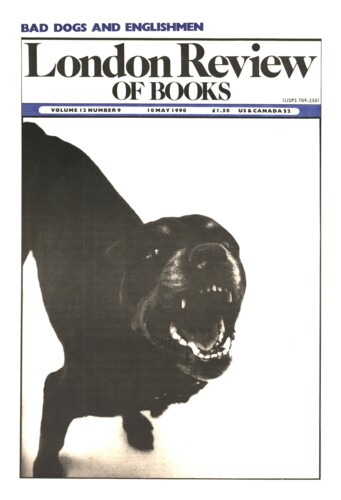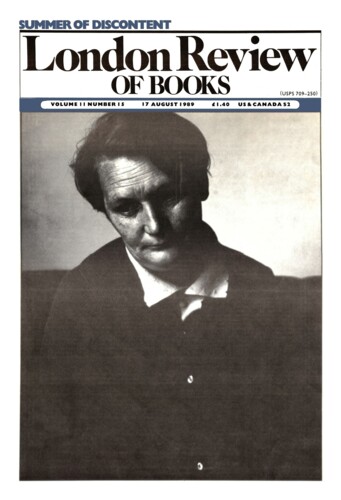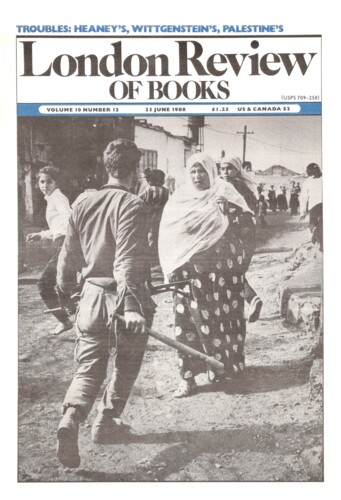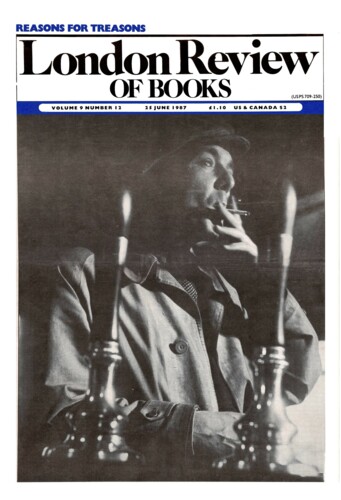Evil Days
V.G. Kiernan, 10 May 1990
Lord Rosebery described Luther, with Victorian blandness, as ‘the German apostle of light and freedom’. Professor Oberman is another admirer, but a judiciously critical one, not a hagiographer. He begins by summing him up as ‘a late medieval man for whom Satan is as real as God and mammon’. Further on, he modifies this by saying that Luther was ‘no longer medieval, but neither had he become modern’. We may indeed see him in his later years of corpulent dogmatism as a whale washed up on the beach, stranded between two tides. He saw himself as a soldier fighting in a desperate if shadowy conflict between heaven and hell. He had no doubt, Oberman reminds us, of the reality of witchcraft, even of its power to kill by casting a spell. In the record of his table-talk, where we see or overhear Luther at his most spontaneous, he abounds in tales of sorcery as grotesque as the fables he accused Papists of swallowing, and has no doubt that witches must be burned. After his marriage he occupied the Augustinian monastery in Wittenberg where he had lived as a monk – a symbol of his only partial, imperfect emancipation from the past.’





